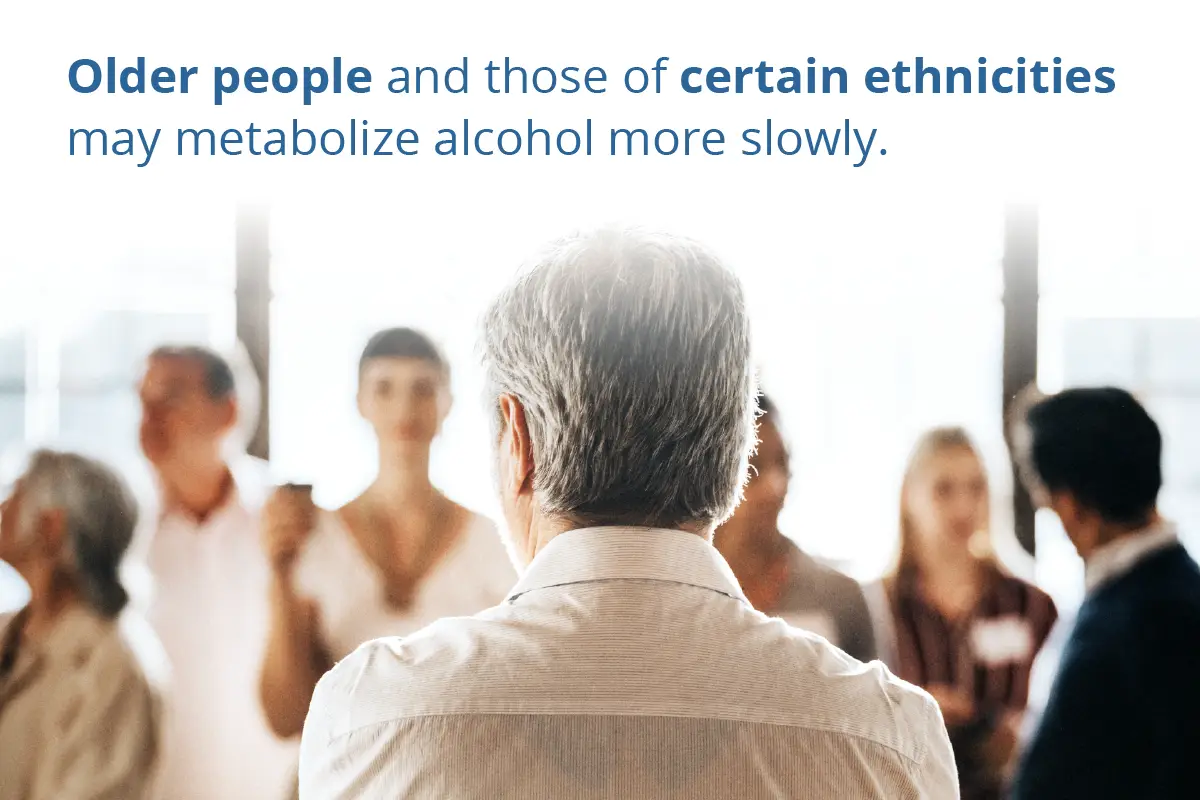How Long Alcohol Stays in Your System
Other Categories

If you’re wondering how long alcohol stays in your system, it’s helpful to understand the detox process. Once you stop drinking, your body immediately starts breaking down the alcohol. This process typically lasts a few hours to a day and involves the elimination of both the alcohol and its byproducts from your body.
This article will delve into the detection window for alcohol in various drug tests and explore the factors that can stretch out this timeline. Understanding how long alcohol lingers is essential for making informed choices about when it’s safe to get behind the wheel or undergo workplace testing.
Key Takeaways
Understanding alcohol metabolism is crucial for comprehending its effects on the brain and body. Here is what you need to know:
- Alcohol undergoes a two-step process in the liver: broken down by liver enzymes into acetaldehyde and further into acetate.
- BAC indicates the concentration of alcohol in the bloodstream, with 0.08% being the legal limit for driving in the United States.
- Detection time varies based on testing methods, ranging from hours for breathalyzer tests to months for hair follicles tests.
- The amount consumed, consumption rate, body size, presence of food, and hydration level can impact the duration of alcohol detection.
- Alcohol detox is the initial phase of recovery, crucial for managing symptoms and laying the foundation for further treatment options.
You have the strength to overcome alcohol addiction. Contact The Haven Detox-South Florida at (561) 328-8627 to start your transformative journey to recovery.
The Journey of Alcohol Metabolism
Alcohol, or ethanol, is primarily metabolized in the liver through a process called alcohol metabolism. The main enzyme responsible for breaking down alcohol is alcohol dehydrogenase (ADH). Here’s a simplified overview of the alcohol metabolism process:
Most alcohol metabolism occurs in the liver, where ADH converts ethanol into acetaldehyde. This reaction involves the removal of hydrogen from ethanol.
Ethanol → Acetaldehyde + Hydrogen ions
Acetaldehyde is a toxic substance, and it is further metabolized by another enzyme called acetaldehyde dehydrogenase (ALDH). This enzyme converts acetaldehyde into acetate.
Acetaldehyde + Oxygen → Acetate + Water
Acetate is relatively non-toxic and can be metabolized into carbon dioxide and water. This final step involves several metabolic pathways, but the result is the complete breakdown of acetate.
Acetate + Oxygen → Carbon Dioxide + Water
It’s important to note that alcohol metabolism occurs at a relatively constant rate, irrespective of the amount of alcohol consumed, and the body generally eliminates about 0.015 to 0.02 percent of blood alcohol concentration (BAC) per hour. This is often the basis for estimating how long it takes for someone to become sober after drinking.
Excessive alcohol consumption can overwhelm the liver’s capacity to metabolize alcohol, leading to an accumulation of acetaldehyde and other toxic byproducts, contributing to the toxic effects of alcohol on the body. Chronic alcohol abuse can also lead to liver damage and other health conditions.
Gradual Reintroduction To Daily Routine
After completing your 3-day alcohol detox, it’s important to gradually ease back into your daily routine. Start by reintroducing regular activities slowly, without overwhelming yourself. Focus on maintaining a balanced schedule that includes time for rest, work, and leisure. This gradual approach assists your body in adjusting to its new, alcohol-free state and supports your overall well-being.
Importance Of Ongoing Support
Ongoing support is crucial for maintaining your progress after detox. Connect with local support groups like Alcoholics Anonymous (AA), counselors, or therapists who can provide guidance and encouragement. Sharing your experiences with others who understand can be very helpful. Regular check-ins with a healthcare professional can also ensure you stay on track and address any challenges you might face.
Long-Term Lifestyle Changes
To build on the success of your detox, consider making long-term lifestyle changes. Focus on healthy habits like eating nutritious foods, exercising regularly, and managing stress effectively. Avoid places or situations that may trigger cravings or temptations. By incorporating these positive changes into your daily life, you set a strong foundation for long-term recovery and improved health.
By following these post-detox recommendations, you set yourself up for continued success and continue moving toward a happier, healthier, alcohol-free life.
Understanding Blood Alcohol Content (BAC): An Overview
Blood alcohol content (BAC) is a measure of the amount of alcohol in a person’s bloodstream. It is usually expressed as a percentage, representing the ratio of alcohol to total blood volume. BAC is a key factor in determining a person’s level of intoxication and impairment.
The legal BAC limit for driving is 0.08 percent, but it’s important to note that even lower levels of alcohol in the bloodstream can impair cognitive and motor functions. As a person’s BAC increases, so do the effects of alcohol on the body. Here is a general guide to the effects of different BAC levels:
- 0.02-0.03 percent: Some relaxation and a mild sense of euphoria.
- 0.05-0.07 percent: Increased relaxation, lowered inhibitions, and impaired judgment.
- 0.08-0.10 percent: Legal limit for driving in many places. Impaired coordination, reaction time, and judgment. Increased risk of accidents.
- 0.12-0.15 percent: Significant impairment of motor skills and increased risk of injury.
- 0.16-0.19 percent: Severe impairment of cognitive and motor functions. Increased risk of blackouts.
- 0.20 percent and above Severe intoxication, risk of alcohol poisoning, and potential loss of consciousness.
- Remember, these effects can vary from person to person, and chronic alcohol consumption can have long-term health effects regardless of BAC. Driving or operating machinery under the influence of alcohol is unsafe and illegal. It’s always best to have a designated driver or use public transportation if you’ve been drinking.
What Prolongs Alcohol Detection
The length of time alcohol is detectable in the human body can vary depending on the type of test used. Here are some standard alcohol detection tests and their general detection periods:
Typically, a breathalyzer can detect alcohol for a few hours after drinking. It measures the amount of alcohol in the breath, indirectly estimating the blood alcohol level. Breath tests are commonly used by law enforcement for roadside testing.
Blood tests are considered more accurate than breath tests and can detect alcohol for a longer period. Alcohol can generally be detected in the blood for up to 12 hours, but this can vary depending on factors like the amount of alcohol consumed and individual metabolism.
Urine tests can detect alcohol or its metabolites for a more extended period compared to blood or breath tests. They can typically detect alcohol for up to 48 hours or longer, depending on the individual’s metabolism and the amount of alcohol consumed.
Saliva tests can detect recent alcohol use and are often used in roadside testing. The detection window is generally shorter than that of urine tests, typically up to 12-24 hours after alcohol consumption.
Hair tests are the most extended-term alcohol detection method. They can provide a historical record of alcohol consumption over several months. Each centimeter of hair is generally considered to represent approximately one month of history, so a 6 cm hair sample might reveal alcohol use over the past six months.
It’s essential to note that the reliable and accurate results of alcohol tests can vary, and some tests may be more susceptible to false positives or false negatives. Additionally, individual factors, such as metabolism, hydration, and the presence of other medical conditions, such as liver disease, can influence alcohol testing results
Frequently Asked Questions
Navigating the journey to recovery can bring up many questions. Below are some of the most commonly asked questions about our services. If you need more information or have additional questions, we are only a phone call away.
How long does alcohol stay in your liver?
Alcohol stays in your liver for about one to six hours. The liver works to break down alcohol into less harmful substances. Various factors like the amount of alcohol consumed, body mass, and metabolism can affect how long alcohol lingers in your liver. It’s essential to drink responsibly for a healthy liver.
On day 3 of detox, withdrawal symptoms often peak, causing increased discomfort. You might experience intense cravings, fatigue, headaches, or mood swings. Your body is working hard to rid itself of toxins, which can make you feel unwell. It’s crucial to stay hydrated, eat nutritious foods, and get plenty of rest. Support from healthcare professionals and loved ones can help manage symptoms and keep you motivated. Remember, this challenging phase is a sign of progress towards recovery.
Can certain activities or consumables speed up the process of alcohol elimination from the body?
Staying hydrated can speed up alcohol elimination. Drink water between alcoholic beverages and after. Physical activity boosts metabolism, aiding in faster alcohol clearance. Take a walk or hit the gym. Consuming food slows alcohol absorption, aiding the body in quicker elimination. Eat before or while drinking.
How long does alcohol stay in my system?
After consuming an alcoholic drink, it typically stays in your system for a few hours. The exact duration varies based on factors like your body weight, metabolism, and the amount you drank. Your body processes alcohol, but remember, individual responses differ. It’s wise to understand how your body reacts to alcohol intake.


Does Niacin Help with Alcohol Detox? Benefits and Recovery Tips Certain vital nutrients are known

Lamotrigine, also known by the brand name Lamictal, is a medication for epilepsy that also

Introduction To 3-Day Alcohol Detox A 3-day alcohol detox is a short-term program designed to

The Role of Saunas in Alcohol Detox: Benefits, Risks, and Recovery Support Saunas are effective

Suboxone, a medication commonly used for opioid addiction treatment, has shown potential benefits in managing

If you’re wondering how long alcohol stays in your system, it’s helpful to understand the
Have Questions? Let’s Talk!
Let’s talk about what’s going on — no judgment. (We’ve been there before ourselves). No one will know you inquired and there is no commitment to call.
Need someone to talk to? We’re here when you need it most.
There’s no obligation to get your questions answered.
No one will ever know you inquired.
